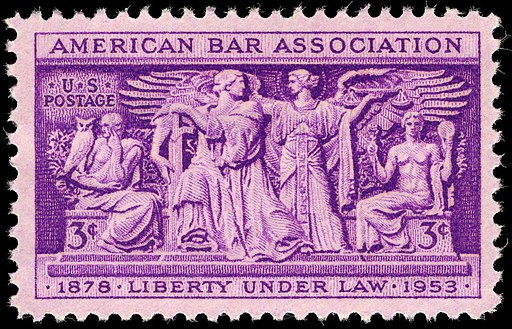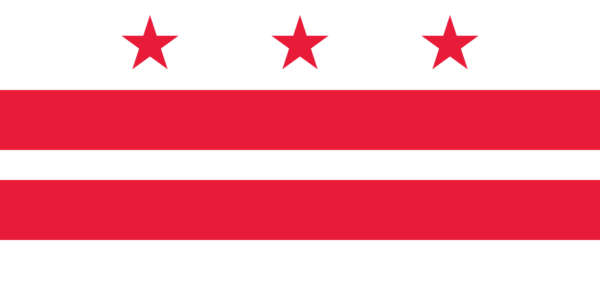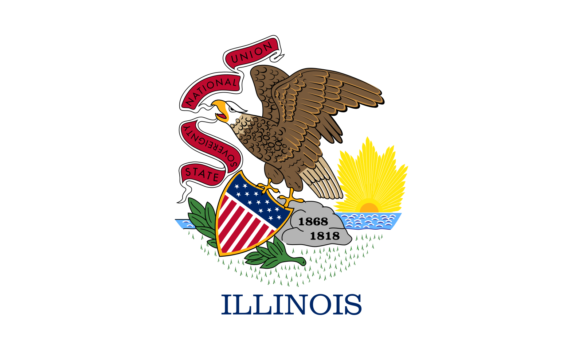The Bar Exam by State – How to Pass the Bar & What You Need to Know
Anyone wishing to practice law must first figure out how to pass the bar exam: it’s one of those unfortunate requirements that must be hurdled before your career begins. It is intense, extensive process figuring out how to pass the bar and requires a great deal of preparation to guarantee success. Using a bar exam tutor is one way to insure you arrive ready to start the exam, filled with confidence and the knowledge required to pass the test successfully. This article aims to help you understand what is covered in the bar exam, what are generally the most difficult areas for many, and how much time and effort is required to pass the first time around.
 How to Pass the Bar Exam: What You Need to Know
How to Pass the Bar Exam: What You Need to Know
The bar exam is a test to ensure applicants are competent to practice law. While the exam will vary between states, there are some common aspects. One of them is the length of time the test generally takes. The bar exam is scheduled over two days. One day is devoted to the Multistate Bar Examination (MBE) which includes 200 standardized items covering seven areas. These areas include:
- Civil Procedures
- Constitutional Law
- Contracts
- Criminal Law and Procedure
- Evidence
- Real Property
- Torts
The second day covers a broader range of topics, but it is common for two nationally developed tests to be used. These are the Multistate Essay Examination (MEE) and the Multistate Performance Test (MPT). The MEE is ‘state specific’ and is in essay format, often comprising of around six questions. The MPT examines the applicant’s ability to use fundamental lawyer skills. It evaluates the candidates ability to complete a task that is suitable for a beginner lawyer. The MPT is not required in every state.
Bar Exam applicants may also be required to undergo a background and character check.
The Hardest Part of the Bar Exam
Due to the fact that we all have different talents and intellect, the hardest part of the Bar Exam will vary greatly between people. At first glance, you may think that multiple choice questions will be the easiest because, after all, the answer is there in front of you. While this is technically true, many people may find these type of questions harder. This is usually because there is more than one right answer. You may be wondering how that can be, but your job is to find the most correct answer in a collection of answers that might, possibly, could be accurate as well. This is to separate the candidates who really know their stuff. It is also quite difficult to remain focused for the two, three-hour multiple choice sessions. Your brain and you will be tired after slogging through this portion of the test!
Essay questions will prove problematic to those who struggle to compose their thoughts into the written language. Even the most confident of essay writers will feel the constraints of time and pressure. The key here is to have cogent thoughts covering all areas that you might need to address, and do it within the time allotted. Practicing and preparing for this section is critical!
In order to pass the Bar Exam successfully, it is best to understand your strengths and weaknesses and prepare accordingly. It’s also very important that you get support in your prepping as well as give yourself plenty of time to review literally everything that you covered in the past three year.
How Much Preparation is Required?
Passing the Bar Exam requires far more than some last minute cramming and natural brains. The average law student will need to spend around 400 hours to pass the exam successfully. Of course this number is a guide only, but it certainly gives a good indication of the time required. If you are a full time student, this means you will need to start studying at least nine weeks before the Bar Exam. If you have other commitments you should start much sooner. Equally, the more time you spend preparing, the greater the chance of first time success. The majority if your preparation should be on learning the subject content and completing practice examination questions. The last few weeks before the exam, focus should be on reviewing the law and taking timed practice exams.
In summary, spend as much time as possible effectively studying – treating it like a full time job and your number one priority. Using a private bar exam tutor will ensure your study time is spent wisely. While it isn’t feasible to use a tutor for every study session, regularly meeting with one will help keep you on track and answer any questions you have. They may even be helpful at providing feedback on your practice examinations since they’ve “been there, done that” and passed.
 Bar Exam Success Rates
Bar Exam Success Rates
The percentage of students that pass the Bar Exam varies greatly between states. Nebraska and Missouri have the highest pass rates for first attempts, while California and Nevada have the lowest. The pass rate for first time applicants will help give you an indication of how much preparation you will need to undertake. However, it is unclear whether the pass rates are indicative of how hard the test is, or how intelligent and prepared the applicants ares for the exam….or both. Either way, you should spend as much time as possible preparing as possible so that you pass the first time around.
Which States are the Most Difficult?
How difficult students find their respective test varies between every state and while opinions exist over which state is the most difficult, there are some generalizations and information that provides a fairly conclusive top five list for those states that are the most difficult to pass for test takers.
- California – notoriously difficult, the Californian Bar Exam has the lowest first time pass rate. It used to be a three day exam involving multiple choice and essay questions. While the format has changed slightly and the time has been reduce to two days, it is still no walk in the park. This is definitely a state where getting help from a California bar exam private tutor is a good way to ensure your preparation will result in success.
- Arkansas – the difficulty of the Arkansas Bar Exam may have something to do with the local and state laws.
- Washington – Seattle is one of the most moved-to cities in the country, attracting many new potential Bar Exam takers. The two day test is vigorous and challenging.
- Louisiana – the bar exam in Louisiana is entirely different from anywhere else in the country. To practice law in Louisiana you must have attended law school in the state to learn the unique legal system. In addition, the difficulty of the exam may also be related to the fact that the content is vastly different to every other state.
- Nevada – the Nevada bar exam takes 2 ½ days and has one of the highest passing score requirements. The number of first time applicants that pass the Nevada Bar Exam is pretty low when compared to other states. These factors combined with the fact that Nevada has some pretty unique laws, makes it one tricky exam to pass.
So there you have it, the bar exam in a nutshell. While it is rigorous and time consuming, plenty of people attempt (and pass) each year. If you put in the time and effort plus get support from classmates or tutors, you can have a successful result.
As we have mentioned, some states are more of a challenge for bar exam students. Here are a few of the states that have ranked highest in difficult,
California
 The California bar exam is the most difficult in the country. Only 60% of candidates passed the exam on the first attempt in 2016. The three day exam previously consisted of six essay questions, 200 multiple choice questions and two performance tests. As of 2017, the exam only takes two days and comprises of five essay questions, one performance test and 200 multiple choice questions. There are 17 subject areas that are covered, and the essay questions could be on any of these 17 areas. If you are an out-of-state applicant, the good news is that California-specific legal knowledge is only required for five of the subjects – federal laws apply to the other sections. Despite this fact, familiarizing yourself with the nuances of California law is incredibly beneficial as the approach to the California bar exam is different to other states. Complete several practice papers to understand the technicalities and marking criteria. This is particularly necessary when sitting the performance test section. While you do not have to regurgitate information, you will need to apply detailed law to show that you have the skills and competence to practice within the state.
The California bar exam is the most difficult in the country. Only 60% of candidates passed the exam on the first attempt in 2016. The three day exam previously consisted of six essay questions, 200 multiple choice questions and two performance tests. As of 2017, the exam only takes two days and comprises of five essay questions, one performance test and 200 multiple choice questions. There are 17 subject areas that are covered, and the essay questions could be on any of these 17 areas. If you are an out-of-state applicant, the good news is that California-specific legal knowledge is only required for five of the subjects – federal laws apply to the other sections. Despite this fact, familiarizing yourself with the nuances of California law is incredibly beneficial as the approach to the California bar exam is different to other states. Complete several practice papers to understand the technicalities and marking criteria. This is particularly necessary when sitting the performance test section. While you do not have to regurgitate information, you will need to apply detailed law to show that you have the skills and competence to practice within the state.
Using a private tutor for the bar exam is the bet way to maximize your chances of success. California law is unique, as are the style of questions and marking used on the bar exam. A California bar tutor will have experience in these areas and be on hand to answer any questions you have as well providing unique hints and tips to ensure success. One of the biggest stumbling blocks for this state’s applicants is the ability to write in the correct format. A tutor can help you, so can a California bar coach. Think of it this way, you wouldn’t attempt a marathon without months of training and professional guidance, so why should you attempt the bar exam alone? Enlisting professional help and allowing yourself plenty of preparation time is one of the most beneficial things you can do to ensure a relatively stress-free and successful and passing score result.
Florida
 With only 66% of first time applicants passing the Florida bar exam, using a Florida bar exam tutor is crucial to your success. The Florida Exam is divided into three sections. Part A and Part B make up the General Bar Examination (GBE). Part A comprises of three hours spent answering essay style questions and three hours completing 100 multiple choice questions. Both General and Florida law are tested in this section. Part B is the Multistate Bar Examination (MBE). The final section is the Multistate Professional Responsibility Examination (MPRE). In order to sit the General Bar Examination, applicants must have graduated from an accredited law school. The MPRE can be attempted prior to law school graduation.
With only 66% of first time applicants passing the Florida bar exam, using a Florida bar exam tutor is crucial to your success. The Florida Exam is divided into three sections. Part A and Part B make up the General Bar Examination (GBE). Part A comprises of three hours spent answering essay style questions and three hours completing 100 multiple choice questions. Both General and Florida law are tested in this section. Part B is the Multistate Bar Examination (MBE). The final section is the Multistate Professional Responsibility Examination (MPRE). In order to sit the General Bar Examination, applicants must have graduated from an accredited law school. The MPRE can be attempted prior to law school graduation.
The examination procedure in Florida allows candidates to select from two methods of testing. These methods are:
- The Overall Method – only applicants who submit both Parts A and B during the same administration can use this method. To pass using this method requires an average score of 136 or higher.
- The Individual Method – applicants who have previously passed part of the exam and wish to retake the part of the exam they failed may use this method. Candidates must achieve a passing score on each of the sections in order to pass the Bar Exam overall.
Statisticians indicate that applicants who opt for the Overall Method may find passing easier. This is probably due to the fact that only one pass score is required as opposed to having to pass each section.
Like most of the exams, it is highly advised to spend a lot of time preparing by learning both federal and Florida law, and by completing as many practice papers as possible. Using a private bar exam tutor will help guide you through these questions. They can offer constructive feedback to ensure you are as prepared as possible come examination day. It is also recommended to make the most of the bar study guide that has been developed by the Florida Board of Bar Examiners, it can be downloaded for free here.
Finally, all applicants to the Florida Bar Exam must be able to provide evidence of good moral character. Further information can be found on the Florida Board of Bar Examiners website.
Virginia
 The Virginia Bar Exam is passed by 75% of first time applicants which may be an indication that it is a little easier than some other states. This doesn’t mean that you can sit back, relax and pass the exam with minimal study or preparation. Like many other bar exams, the Virginia bar exam takes place over two days. The first day comprises of a taxing 20 short answer questions and nine essay questions. Day two is the Multistate Bar Exam (MBE), which is 200 multiple choice questions. The MBE score is weighted at 40% and the essay section equates to 60%. The sections are combined to provide an overall score. The Virginia bar essay topics may include:
The Virginia Bar Exam is passed by 75% of first time applicants which may be an indication that it is a little easier than some other states. This doesn’t mean that you can sit back, relax and pass the exam with minimal study or preparation. Like many other bar exams, the Virginia bar exam takes place over two days. The first day comprises of a taxing 20 short answer questions and nine essay questions. Day two is the Multistate Bar Exam (MBE), which is 200 multiple choice questions. The MBE score is weighted at 40% and the essay section equates to 60%. The sections are combined to provide an overall score. The Virginia bar essay topics may include:
- Agency
- Conflict of Law
- Constitutional Law
- Contracts
- Business Organizations
- Creditors Rights
- Criminal Law
- Domestic Relations
- Equity
- Evidence
- Federal Practice and Procedure
- Local Government Law
- Professional Conduct
- Real and Personal Property
- Sales
- Suretyship
- Taxation
- Torts
- Trusts
- Uniform Commercial Code
- Virginia Civil and Criminal Procedure
- Wills and Estate Administration
As you can see, the vast number of possible essay subjects makes studying for the Virginian bar exam incredibly difficult. There is a lot of content to get your head around and become familiar with, so getting help or working in a group is an excellent way to help you achieve a pass result the first time around. Using a tutor allows you to receive constructive feedback, especially when completing practice questions. However, a tutor can sometimes be costly and not accessible by everyone. If that is the case, it is possible to self study for the Virginia test.
Self study requires a fair amount of dedication, but there are a few useful tips you can follow to give yourself the best chance at success. These include:
- Start early – this doesn’t mean well in advance of the bar exam (although that is essential), it means early in the morning. If you are not a morning person, it might be time to start. The test starts early in the morning so it’s a good idea to train your brain to start thinking in the morning. Starting early also ensures you get enough study done each day.
- Start with an essay – essay questions are renowned for being the hardest so it’s always a good idea to to get the hardest study over and done with first, rather than procrastinating.
- Use Virginia bar exam study materials – these can be found online and include study guides and practice questions.
- Allow for some rest time – while studying for the bar exam should be considered a full time job, your brain will function better if you allow yourself some down time. Watch a movie, go for a walk or hang out with friends.
A combination of productive self study and a Virginia bar exam prep help will give you the best chance at stress-free success.
District of Columbia
 The first time pass rate for bar exam applicants in the District of Columbia is 74%, making it seemingly a little easier than quite a few other states. The exam is held over two days, each day is explained in more detail below:
The first time pass rate for bar exam applicants in the District of Columbia is 74%, making it seemingly a little easier than quite a few other states. The exam is held over two days, each day is explained in more detail below:
Day 1 – the written part of the DC Bar Exam takes place on the first day. This includes the Multistate Performance Test (MPT) which has two questions and a three hour time allowance. The Multistate Essay Exam (MEE) also takes place on day one and involves six questions over three hours. The essay questions can come from any of the following subjects;
- Business Associations
- Conflict of Laws
- Family Law
- Federal Civil Procedure
- Trusts, Wills, and Estates
- Uniform Commercial Code
- All MBE Subjects
Day 2 – applicants will sit the Multistate Bar Exam (MBE) on the second day of the DC Bar Exam. It is split into two sections, each administered over three hours and consisting of 100 multiple choice questions.
The weighting of each section is: MPT 20%, MEE 30%, and MBE 50%.
Like other states, each section is vastly different so knowing how to prepare and study effectively is key to passing the DC Bar Exam. Here is some sound advice for each section:
Multistate Bar Exam – firstly you must understand the material, then memorize the material, and finally practice applying the material. Spend plenty of time answering practice questions in timed conditions.
Multistate Essay Exam – practice writing several essays each week. Make sure you understand the material, using a tutor can help you with this. Once you are confident that you know what you are writing about, time yourself writing your answers to stimulate exam conditions.
Multistate Performance Test – whilst you may not need to learn specific content for the MPT, spending time practicing the style of questions will ensure you approach this section confidently.
Options that are easily available are some of the group or courses that exist as well as private bar tutors. Self study and group sessions are great ways to prepare for the DC bar exam, but using a private tutor will ensure any troubles you have are eliminated. They can tailor lessons to suit your exact needs and provide valuable one-on-one teaching that you just can’t get from group lectures plus they’ve already passed the exam which helps in knowing any tricks that you might encounter during the test days.
Pennsylvania
 Three quarters of first time candidates pass the Pennsylvania Bar Exam, a statistic that should fill future applicants with a little confidence.
Three quarters of first time candidates pass the Pennsylvania Bar Exam, a statistic that should fill future applicants with a little confidence.
There are six essay questions, and at first thought that may sound simple. The tricky part is that any one of 15 subjects can be tested using these essay questions. In preparation for the exam make sure that you learn the content in each and every one of the 15 subjects throughly. The next step is to spend a large amount of time completing practice essay questions. Finally, essay questions should be practiced under timed conditions to stimulate real exam pressures.
Applicants will also be asked to complete a performance test. The purpose of this test is to ensure that candidates are able to perform basic legal tasks. The test involves being given a file and various documents with the aim to formulate an answer to the task. While you do not need to learn and memorize specific content, there is some skill in achieving successful results in this section. Like many other sections, practicing questions in crucial. This way you will gain an understanding of the style of questions asked and the best way to formulate your answers.
As with other states, the Multistate Bar Exam (MBE) comprises of 200 multiple choice questions testing the seven standardized areas. Learning, understanding and memorizing content is the key to success in this part of the exam. Keeping a clear head when answering all 200 questions in a given time frame is no easy task, so practice is crucial. Allocate plenty of time to prepare for this section and do so in timed conditions to stimulate exam conditions.
As you can see, the most successful way to achieve passing bar exam results is to practice, practice, practice. Using any of several studying and practice options on your own, in a course or with a tutor will be critical to getting a successful result on your bar this year!
Illinois
 Illinois has one of the highest first time pass rates for the bar exam with 78% of candidates competing the examination successfully. Definitely one of the states that has a high pass rate, you don’t want to get too complacent. The exam takes place over an intense two day period and is comprised of four components.
Illinois has one of the highest first time pass rates for the bar exam with 78% of candidates competing the examination successfully. Definitely one of the states that has a high pass rate, you don’t want to get too complacent. The exam takes place over an intense two day period and is comprised of four components.
- The Illinois Essay Exam (IEE) – candidates will need to answer three 30-minute essays on Illinois Law.
- The Multistate Performance Test (MPT) – a 90 minute test that examines candidates’ ability to use basic lawyering skills. They must separate relevant from irrelevant and communicate legal concepts effectively.
- The Multistate Essay Exam (MEE) – six 30-minute essays must be answered and provide evidence that candidates can understand universal law concepts.
- The Multistate Bar Exam (MBE) – like most other states, candidates will have to answer 200 multiple choice questions over two, three-hour periods. Candidates are tested on their knowledge of fundamental legal principles. They will analyze fact situations and choose the correct answer from the four options available.
Out of state applicants can use their MBE score from their own jurisdiction if their score is over 141 and transferred within 13 months of sitting their exam. These applicants must still sit, and pass, the other sections of the Illinois bar exam.
Both local and out of state applicants should enlist the help of an Illinois bar exam tutor to ensure that they are learning the correct content and material. A knowledgeable tutor will also be able to provide Illinois-specific information and ease concerns regarding difficult topics. They will provide feedback on practice papers, which is the best form of preparation you can do. Practice essay questions can be found here and it is recommended that applicants complete these questions under timed conditions to stimulate exam conditions.
Organization is key when it comes to the Illinois bar exam. Not only will you be better prepared and confident in your ability to succeed if you spend more time studying, but you will also save yourself money. Also, don’t forget! The sooner you apply to sit the Illinois bar exam, the cheaper the application fee.
Overall, begin preparing the for the exam early and practice, practice, practice!
Arizona
 Applicants wishing to pass the Arizona Bar Exam on the first attempt may not be filled with confidence upon hearing that the pass rate is only 63%. This places it among the lowest passing states. Don’t let this fact put you off, however. Good preparation will ensure you give yourself the best shot at passing the first time around. Familiarize yourself with the Arizona bar exam and allow plenty of time to learn, revise and practice each of the sections.
Applicants wishing to pass the Arizona Bar Exam on the first attempt may not be filled with confidence upon hearing that the pass rate is only 63%. This places it among the lowest passing states. Don’t let this fact put you off, however. Good preparation will ensure you give yourself the best shot at passing the first time around. Familiarize yourself with the Arizona bar exam and allow plenty of time to learn, revise and practice each of the sections.
- Multistate Bar Exam (MBE) – 200 hundred multiple choice questions are administered over two, three-hour periods testing knowledge of each of the seven standardized bar areas.
- Multistate Essay Exam (MEE) – unlike many other states, there are nine questions available in this section. However, most jurisdictions only choose six (like other states) to test the applicants. Each question or essay is allocated 30 minutes to complete. The essay question can come from the following subjects;
- Business Associations
- Conflict of Laws
- Family Law
- Federal Civil Procedure
- Trusts, Wills and Estates
- Uniform Commercial Code
- All MBE Subjects
- The Multistate Performance Test (MPT) – two 90 minute questions are administered and cover areas such as legal analysis, fact analysis, problem solving, resolution of ethical dilemmas, organization and management of a lawyering task, and communication.
- The Multistate Professional Responsibility Examination – 60 multiple choice questions must be completed in the designated two hour and five minute timeframe.
Preparation for the Arizona bar exam takes several months and involves learning the content, memorizing the content and then applying your knowledge practically. It is advisable to complete several practice questions, ideally under timed conditions, to gain a thorough understanding of the expectation and reality of the exam.
Prepping for the bar alone can be exhausting. Finding and using additional resources or group studying will make the process a bit more enjoyable. And if you struggle in certain areas or aren’t as confident as you might be, an Arizona bar tutor might be helpful as well!
Texas
 To pass the Texas bar exam the first time, you will need to join the other 77% of successful candidates. The exam is longer than most other states so you probably need to spend more time preparing. Don’t let this put you off, with a fairly high success rate for first time candidates you can approach the exam with a positive attitude.
To pass the Texas bar exam the first time, you will need to join the other 77% of successful candidates. The exam is longer than most other states so you probably need to spend more time preparing. Don’t let this put you off, with a fairly high success rate for first time candidates you can approach the exam with a positive attitude.
The exam is spread over 2 ½ days and is made up of four components;
- The Multistate Performance Test (MPT) – a 90 minute session that makes up 10% of your final mark.
- The Procedure and Evidence questions (P&E) – another 90 minute session, also contributing 10%, that covers Texas civil procedure and evidence (including jurisdiction), and Texas and federal criminal procedure and evidence.
- The Multistate Bar Exam (MBE) – contributing 40% to your overall Bar Exam result, the MBE is 200 multiple choice questions administered over two three hour sessions.
- The Texas Essay questions – this component is spread over two sessions of three hours each and and makes up 40% of your total score. Essay topics can include;
- Business associations
- Wills and administration
- Family Law
- Uniform commercial code
- Real property (including oil and gas)
- Trusts and guardianships
- Consumer rights (including DTPA and insurance)
When it comes to preparing for the Texas Bar Exam it is recommended to make the most of study aids given to you at law school and to build a strong support network. This network is crucial for both academic and emotional support. Either a bar prep course, Texas bar exam tutor or other study options will help. You want to make sure that you have plenty of time to go over and cover everything in detail. When you create your study schedule, allow for several sessions each week with your tutor or team to go over material, content and practice questions.
New York
 Future New York lawyers will be pleased to hear that 81% of first time applicants pass the bar exam. It is unclear whether this means that the exam is easier or that New Yorkers are simply better prepared. Even with the fairly high success rate, passing the New York bar exam does not guarantee employment in the legal sector. Studying for the bar exam is difficult and time consuming, even with the high first time pass rate, you shouldn’t assume immediate success. On top of the seven standardized areas, New York bar exam applicants are also tested on:
Future New York lawyers will be pleased to hear that 81% of first time applicants pass the bar exam. It is unclear whether this means that the exam is easier or that New Yorkers are simply better prepared. Even with the fairly high success rate, passing the New York bar exam does not guarantee employment in the legal sector. Studying for the bar exam is difficult and time consuming, even with the high first time pass rate, you shouldn’t assume immediate success. On top of the seven standardized areas, New York bar exam applicants are also tested on:
- Agency and Partnerships
- Corporations
- Conflict of Laws
- Family Law
- Secured Transactions
- Trusts
- Wills and Estates
There are six 30-minute essay questions as part of the examination. This is a large proportion of the exam so using a bar exam essay tutor is advised. Even the most capable essay writers should seek specific advice when studying for the bar exam. The content and structure is different to many other essay-style examinations.
The MPT section is a 90-minute question that is designed to examine candidates’ ability to use fundamental skills in a realistic situation. They are given a case file and library, and are given a task such as writing a memo, a brief, a statement of fact or a will. It doesn’t necessarily require any regurgitation of knowledge, but more evidence to suggest that an applicant will be capable in the legal workforce. That being said, some specific knowledge of the law is still required to form a thorough and logical response. The best way to review for this section of the New York bar exam is to complete as many practice questions as possible to familiarize yourself with the layout and style of questions asked.
New York is one of the few states that allows candidates with a foreign legal education to sit for the bar, making it a popular choice for international applicants.

Enjoy All The Benefits
You don’t pay your first hour unless you find it a good fit.
Only pay for the time you need.
No subscriptions or upfront payments.
Find Tutors Near You